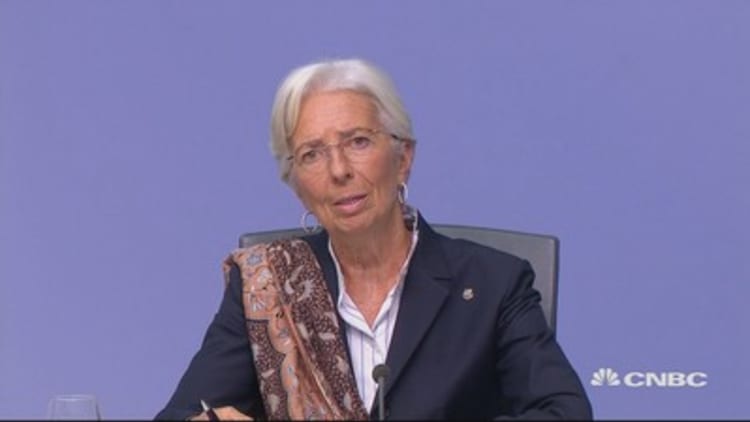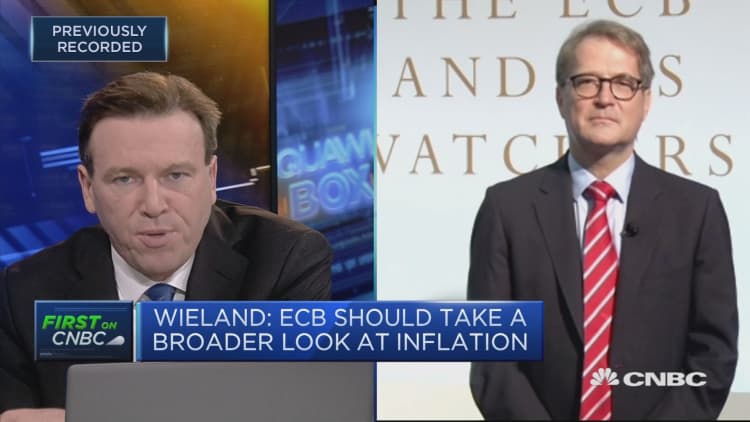FRANKFURT, Germany — The Governing Council of the European Central Bank will meet this Thursday for a scheduled monetary policy meeting, and the backdrop couldn't be bleaker.
Lockdowns are being re-imposed across Europe as Covid-19 cases are surging and the economic outlook is deteriorating by the day, which will continue to weigh on inflation. The ECB however is not yet expected to add to its stimulus, but rather to signal action for December.
"We expect a clear signal for action in December coming from the meeting," writes Dirk Schumacher of Natixis in a note from last week. "The risk to the recovery is rising again and latest inflation data have disappointed undershooting again staff projections. All this should clear the way for an increase of the PEPP in December." The PEPP is the ECB's pandemic emergency purchase program, first instituted in March.
Economic data is deteriorating once again, with the Flash PMI for the Eurozone hitting a four-month low.
"The survey revealed a tale of two economies, with manufacturers enjoying the fastest growth since early-2018 as orders surged higher amid rising global demand, but intensifying COVID-19 restrictions took an increasing toll on the services sector, led by weakening demand in the hard-hit hospitality industry," said Chris Williamson, chief business economist at IHS Markit.

Lockdown measures are getting reintroduced across Europe and the somewhat optimistic economic picture that ECB President Christine Lagarde previously painted at the last ECB policy meeting in September has darkened considerably. That is why most economists do expect action in December. ECB executive board member Philipp Lane, the mastermind behind the pandemic crisis measures, is said to be a friend of "package solutions", which might be deployed again at the next meeting.
"Currently we expect a composite easing strategy in December: more PEPP, in one form or another, to address the pandemic risk and more APP (asset purchasing program) to address the persistent low inflation problem," wrote Mark Wall of Deutsche Bank in a note from October 22. "This approach would soften the PEPP 'cliff' in mid-2021 and add a 'ramp' as insurance during a long-lasting and vulnerable post-pandemic recovery."
One year into her job, Christine Lagarde is not only fighting the worst economic slump since the Second World War but at the same time also working on a comprehensive strategic review. The results of this review will be only published next year but the clear focus of the markets is what happens to the inflation target. The odds are high that the target will be changed and that the ECB will allow rather higher inflation in the future.

"In the current environment of lower inflation, the concerns we face are different (than in 2003) and this needs to be reflected in our inflation aim," ECB President Christine Lagarde said at a press conference on September 30.
The Federal Reserve in the United States has undertaken a similar assessment and announced in late August that it would be allowing inflation to run above its target of 2% for "some time." This means that the central bank will be less likely to increase interest rates — a move that has wide implications for financial markets and the everyday consumer.
It is also Christine Lagarde's one year anniversary at the ECB.



